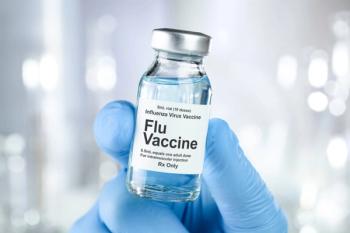
Review some of the top stories from the Contemporary OB/GYN website over the last week, and catch up on anything you may have missed.

Review some of the top stories from the Contemporary OB/GYN website over the last week, and catch up on anything you may have missed.

In a recent study, adjustments for maternal characteristics mediated the association between maternal prenatal cannabis use and offspring autism spectrum disorder, indicating no statistically significant increase in risk.

In a recent study, high rates of reproductive health service use were reported among adolescent mothers, indicating the benefits of this model for providing care when other options are unavailable.

In a recent study, children ceonceived through assisted reproductive technology were slightly more likely to present with Beckwith-Wiedemann syndrome, Prader-Willi syndrome, or Silver-Russell syndrome.

Review some of the top stories from the Contemporary OB/GYN website over the last week, and catch up on anything you may have missed.

Research reveals that over a third of adolescents in pediatric emergency departments struggle with access to menstrual products, highlighting the need for improved public health measures.

Review some of the top stories from the Contemporary OB/GYN website over the last week, and catch up on anything you may have missed.

In a recent study, patients with early puberty had increased rates of diabetes, obesity, and other metabolic conditions, as well as increased mental health risks.

While rates of exclusive breastfeeding have slightly increased between 2016 and 2022, they remain under the Healthy People 2030 goal.

Respondents of a survey conducted by Contemporary OB/GYN shared their practices for RSV counseling and their thoughts on how awareness may be improved.

Review some of the top stories from the Contemporary OB/GYN website over the last week, and catch up on anything you may have missed.

In a recent global review, significant annual increases in the mean term birthweight were reported, indicating worldwide public health impacts.

In a recent study, infants of mothers with an influenza infection during pregnancy were significantly more likely to experience febrile seizures, but not epilepsy.

Review some of the top stories from the Contemporary OB/GYN website over the last week, and catch up on anything you may have missed.

A recent study reveals that consuming fish during pregnancy is associated with a reduced risk of autism in children, while omega-3 supplements show no significant benefit.

In a recent study, neurodevelopmental outcomes did not significantly differ among children exposed to metformin in utero vs those unexposed.

Review some of the top stories from the Contemporary OB/GYN website over the last week, and catch up on anything you may have missed.

In a recent study, only mothers with a COX1 rs1330344 TT genotype had reduced offspring atopic dermatitis risk following fish oil supplementation.

The CDC's latest guidelines for the 2024 to 2025 influenza season include updates to vaccine composition and specific recommendations for high-risk groups, including children, pregnant persons, and solid organ transplant recipients.

The investigational drug could prevent the rare fetal disease HDFN (hemolytic disease of the fetus and newborn) by stopping harmful antibodies from transferring through the placenta during pregnancy.

A Stanford Medicine study finds kangaroo care boosts brain development in premature infants, showing even brief skin-to-skin contact leads to better cognitive outcomes at 1 year.

A recent study highlights how a lack of reliable transportation significantly reduces influenza vaccination rates among pregnant individuals, underscoring the need for improved prenatal care access.

A recent study reveals a direct association between higher maternal body mass index and the risk of sudden unexpected infant death, underscoring the need for further research into the causal mechanisms.

A recent study reveals that children born to mothers with hypertensive disorders during pregnancy are significantly more likely to develop strabismus.

Higher prenatal exposure to PM2.5 pollution is associated with reduced lung volume and airflow limitation in children, highlighting the critical impact of air pollution on in utero lung development.